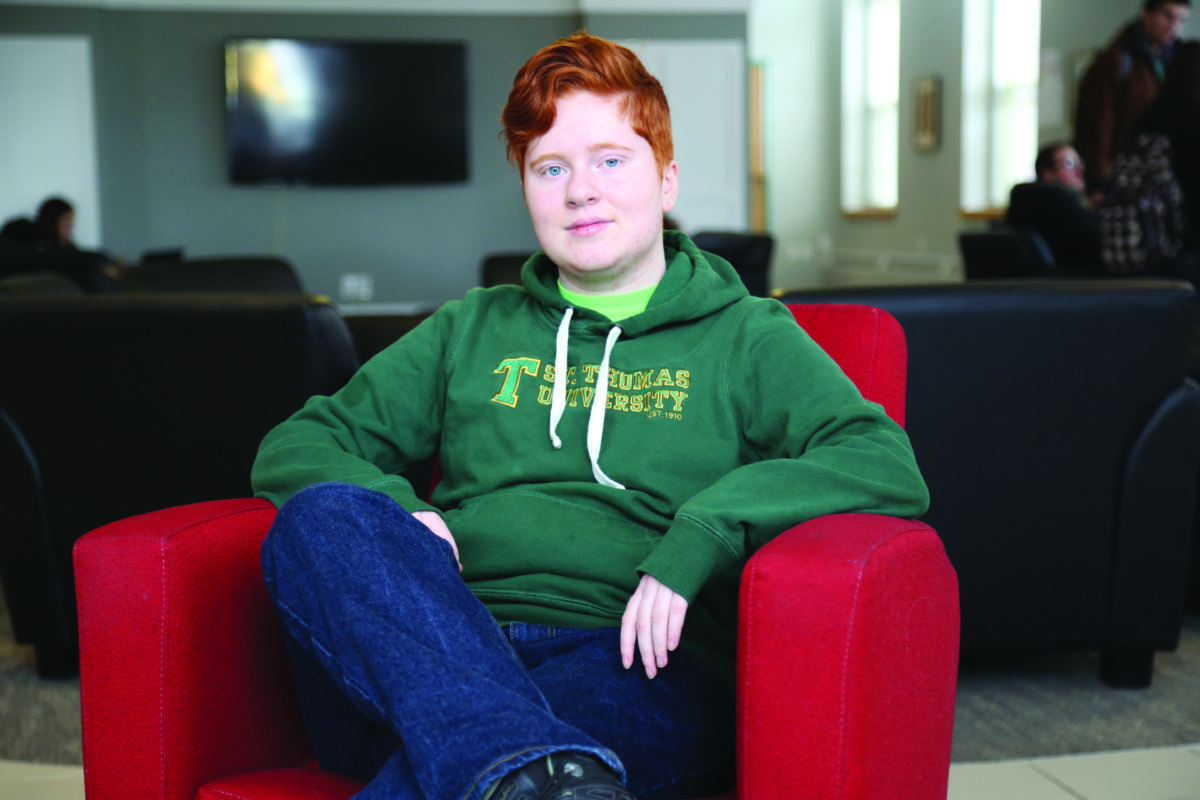
My life is all about where I use the bathroom. I’ve gotten used to it.
Sure, there is more to my day than peeing. I help residents navigate the university experience as a residence advisor. I study hard to earn my grades. I get nervous when my date kisses me. I get excited about Christmas with my family. And sometimes, in fact a lot of the time, I make bad decisions with my friends.
Yet when people find out I’m transgender all that is erased by wonder… They wonder about where I should use the bathroom.
This question was posed to the Canadian government earlier last year. Imagine having to ask your government where you can perform one of the most basic human functions.
Bill C279 had more to it than just bathrooms. It had rights and freedoms for all transgender Canadians. We would have had our own government recognize our identity as legitimate. Imagine having to ask your government if your entire gender is even real.
But when it was handed over to a senate committee, they branded it as a ‘bathroom bill,’ openly calling it so in the media. The diversity of trans-rights was reduced to where we can pee. The diversity of the trans community was confined to a bathroom.
The bill was gutted by the senate. Amendments were made that rendered the bill essentially useless in protecting trans people. So-called sex-segregated spaces would have been exempt from restrictions on discrimination. Transition houses could refuse services to trans women in need. Prisoners would be put at severe risk of harassment by getting no say in what gender prison they are sent to. Physical and verbal hate in public restrooms would be excusable.
When the previous government chose to believe the unfounded myth that giving trans people rights enables rapists, they told all transgender Canadians that they are a second thought. That they are only worth protecting if it’s convenient for everyone else.
See, Bill C279 would have added trans-rights as protected ground under the Canadian Human Rights Act and the Criminal Code. We would have been able to claim to be victims of hate crimes. We would have had legal grounds to stand up against prejudice. We would have a stronger argument in the fight for healthcare access.
Maybe if we didn’t have to plead with our government to recognize our genders, then we would have some sort of respect. Maybe people wouldn’t use any excuse they could to avoid using language that includes us. Maybe we wouldn’t face so many intrusive strangers in public. Maybe I wouldn’t hear so many stories.
Stories about my friend’s classmates trying to stone her when she stepped off the school bus one day. Stories about another friend who was suspended for fighting back when they were being beaten.
And yes, I said they to refer to one person because respecting people’s dignity is more important than perfect clarity. Having people tell you the words you use to describe yourself are wrong is like being told: who you are doesn’t actually count. It’s like saying “I prefer Mr. Tunney,” and being told that Mrs. is more acceptable.
Maybe if we didn’t have to ask for government recognition before we could ask for respect we wouldn’t have a life expectancy of under 67 years. Maybe being murdered wouldn’t be one of my expectations for the future.
It may be difficult for you to imagine why this matters. Unless you yourself are trans, it’s easy to forget that trans people exist. But what if your child was the next suicide statistic? What if your sibling or friend was the next local tragedy? What if you had to look in the eyes of someone you love and hear them tell you they’re having a midlife crisis — at 18?
When the previous government decided that trans-rights were optional, they reminded me that I’m not really a person. I am only a technicality, an afterthought. A suggestion for people who want to be politically correct, but not a human being with rights. I was upset, but not surprised.
When people find out I’m trans they don’t see me as a person anymore. They see me as a dictionary of complex terms they don’t want to read. They see me as a sociology experiment. They see me as a question: where do you use the bathroom? Why should I expect my government to see me any differently?
Those feelings of hopelessness were shattered on Oct. 19 with the election of a Liberal majority. I had hope again. I had reason to believe that I would finally, at long last, be recognized as a human being.
When Justin Trudeau was here on campus, I stood in the selfie line up for what felt like hours. I stretched out my arm and shook hands with Trudeau, and I asked him if Bill C279 would come back. He said “Absolutely,” but I was still skeptical. I asked how he planned to keep ignorance and transphobia from killing the bill the way it did last time.
He looked me straight in the face and promised, “We won’t base our government on ignorance and transphobia.”
What a bad answer to give, but in the swarm of camera phones and selfie sticks, it meant the world to me. It meant I was more than a bathroom. It meant my now-Prime Minister thinks of me as a human being.
Trans-rights are not optional, because being trans is not optional. And now, trans-rights even seem possible.
